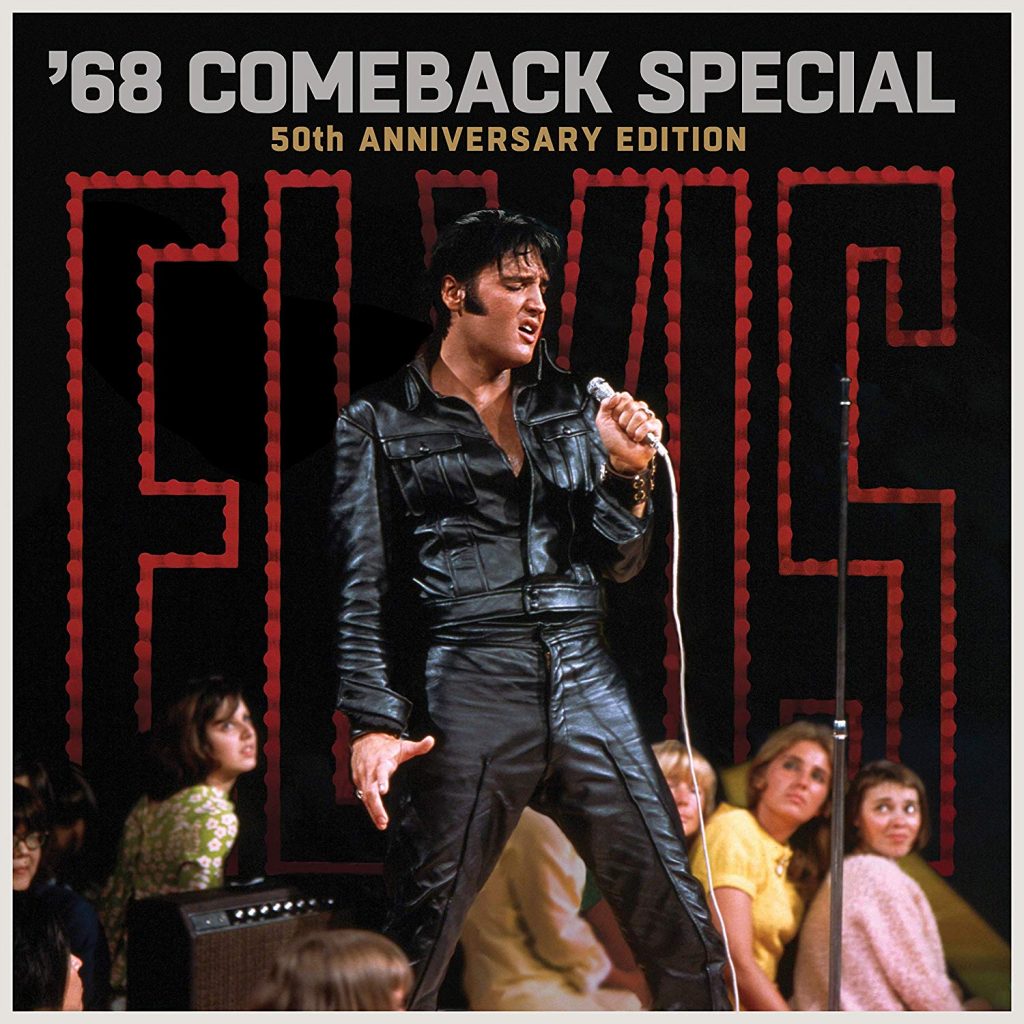
Though released at the tail end of 2018, this feels like a more appropriate totem in which to hail Elvis Presley today—on what would have been his 84th birthday. No matter when and why, Elvis’ first-ever television special was and is a raucous party worth celebrating and reliving in living color.
It is no secret now (or then) that Presley’s hit-making abilities and daring cultural markings had been on the decline by the time the absolute youth quake of 1967 (the Summer Of Love, Sgt. Pepper, etc.) struck. 1968, then, would be pivotal—not only because Presley’s only child, Lisa Marie, was born, but because Elvis and his manager, Colonel Parker, had already started moving into television—with NBC—beginning with what would be a Christmastime special to air Dec. 3, 1968. Recorded in June in Burbank that year before an intimate audience, and simply called Elvis, this would be no run-of-the-mill holiday spectacular. Santa never dressed in tight black leather and swung a guitar like a cat.
Presley’s first live performances since 1961 were boldly audacious and uninhibited. They were stripped down and salty, even when accompanied by a larger band, and found the dancer in Elvis gloriously unencumbered and free. Then-journalist (now Springsteen manager) Jon Landau wrote at the time that Presley “moved his body with a lack of pretension and effort that must have made Jim Morrison green with envy.” With that, his next single of January 1969, “If I Can Dream” (written for the special), and the Elvis soundtrack leaped into Billboard’s top slots. The king was back.
This seven-disc boxed set is the whole shebang in one place, on CD and Blu-ray, warts and all, and including a seated reunion with his original 1950s combo, and once juxtaposed with performances from his larger, hornier ensemble, it paints a full picture of a man hungry for a comeback. Funnier, too, when you consider (from the written oral history in the box) how the Colonel wanted Elvis to run (more sacred, less hip-swiveling). It is, however, the sound of Presley and of Elvis, then seeking appeal to a younger audience, that is most pertinent. From the rocking (duh) roar of “Tiger Man” and the slow, horny “Trouble” to the bluesy run of “Nothingville,” “Big Boss Man” and the neo-doo wop of “Little Egypt,” there’s a guile and gutsiness—a daunting primal sexuality—to Presley’s vocals unheard since the days of Sun Studio. With this new-vibe-alive Elvis, even the holy-rolling likes of “Where Could I Go But To The Lord?” and “Up Above My Head,” as well as the holiday likes of “Blue Christmas” and “One Night,” sounded salty.
Without this Comeback Special, there would’ve been no From Elvis in Memphis (1969), his rawest and most soulful album since ’56. Christmas would never have seemed so naughty without Presley’s hips swaying and loose warbling vocals. No matter what else, this is a primer on what true rock-star attitude could be at its flashiest.
Happy birthday, Elvis.
—A.D. Amorosi






